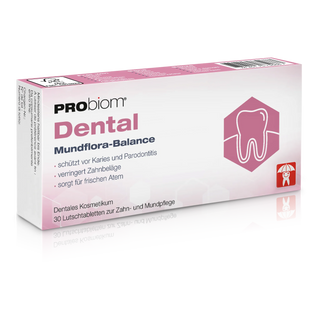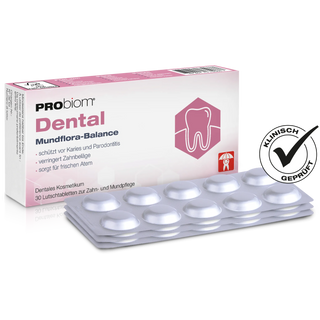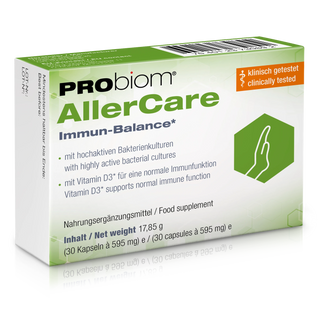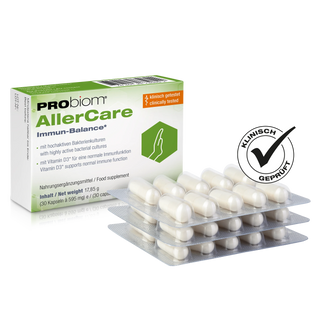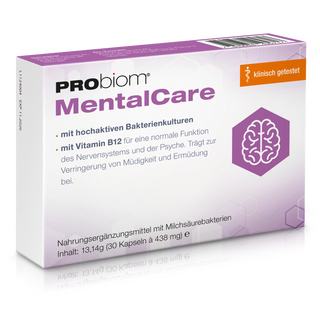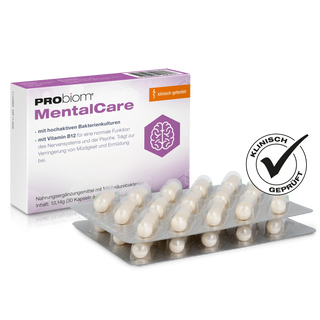Histamine intolerance is affecting more and more people and often causes complaints such as headaches, skin rashes, digestive problems and other non-specific symptoms. One of the most common questions from sufferers is: "Are there probiotics that can help me?" Certain probiotics can indeed be helpful in alleviating symptoms, but not every probiotic is suitable for histamine intolerance. In this article, you will learn which probiotic strains are specifically suitable for people with histamine intolerance and how they can promote tolerance.
What is histamine and why is it a problem?
Histamine is a natural compound that occurs in various foods and is produced by the body itself. It acts as a messenger for the immune system and regulates processes such as inflammation and the production of stomach acid. However, people with histamine intolerance have difficulty breaking down histamine. This is often caused by a deficiency in the enzyme diamine oxidase (DAO), which breaks down histamine. The result is an excess of histamine in the body, which can cause symptoms.
The Role of Probiotics in Histamine Intolerance
Probiotics are live microorganisms that are beneficial for intestinal health. They help to maintain a balanced intestinal flora, which is particularly important because around 80% of the immune system is located in the intestines. The key to choosing a suitable probiotic for people with histamine intolerance is to choose strains that produce little or no histamine. This is because some probiotic bacteria can actually produce histamine themselves, which could worsen symptoms in sensitive people.
These probiotics are suitable for histamine intolerance
- Lactobacillus rhamnosus
- Effect : This strain is known for its anti-inflammatory properties and can help strengthen the intestinal wall. Lactobacillus rhamnosus does not produce histamine and is therefore suitable for people with histamine intolerance.
- Benefits : Relieves symptoms such as bloating and diarrhea and may help to generally soothe the digestive tract.
- Lactobacillus plantarum
- Effect : Lactobacillus plantarum helps regulate the intestinal flora and is particularly useful because it not only does not produce histamine, but even provides enzymes that can break down histamine.
- Benefits : Particularly effective in relieving flatulence and stomach cramps and has a positive effect on inflammation levels.
- Bifidobacterium infantis
- Effects : This strain is known for its calming effects on the immune system and can reduce the production of histamine in the intestines.
- Benefits : Helps reduce inflammation in the intestines and stabilize the intestinal flora.
- Lactobacillus gasseri
- Effect : Lactobacillus gasseri also supports the intestinal mucosa and promotes healthy digestion without histamine production.
- Benefits : May help reduce symptoms such as heartburn and stomach pain and is often praised for its positive effects on fat digestion.
- Bifidobacterium longum
- Effect : Bifidobacterium longum has a calming effect on the intestines and promotes relaxation of the immune system. It does not produce histamine and helps to keep the sensitive microbiome in balance.
- Benefits : Helps against flatulence and digestive problems and supports a healthy balance of bacteria in the intestines.
What should you look out for when taking probiotics for histamine intolerance?
Not all probiotic products are the same. The following criteria can help you find a suitable probiotic:
- Histamine-free : Make sure the probiotic strains do not produce histamine.
- No problematic additives : Some probiotics contain additives that can trigger reactions in people with histamine intolerance. Choose a product without colorings and preservatives.
- Capsule quality : Some capsules contain fillers or other potential triggers. It's worth looking for products that contain only the probiotic strains without unnecessary additives.
Tips for taking probiotics for histamine intolerance
- Start slowly : Start with a low dose and observe how well you tolerate it before increasing the dose.
- Be patient : Probiotics take time to take effect. Give your body about two to four weeks to adjust.
- Right combination : In addition to probiotics, a low-histamine diet can also help relieve symptoms.
Conclusion
Probiotics can be a valuable supplement for people with histamine intolerance if the right strains are chosen. Strains such as Lactobacillus rhamnosus , Lactobacillus plantarum , Bifidobacterium infantis , Lactobacillus gasseri and Bifidobacterium longum are particularly suitable because they do not produce histamine and have a calming effect on the immune system and intestines. In combination with a low-histamine diet and under medical supervision, probiotics can help to increase well-being and relieve the symptoms of histamine intolerance.



